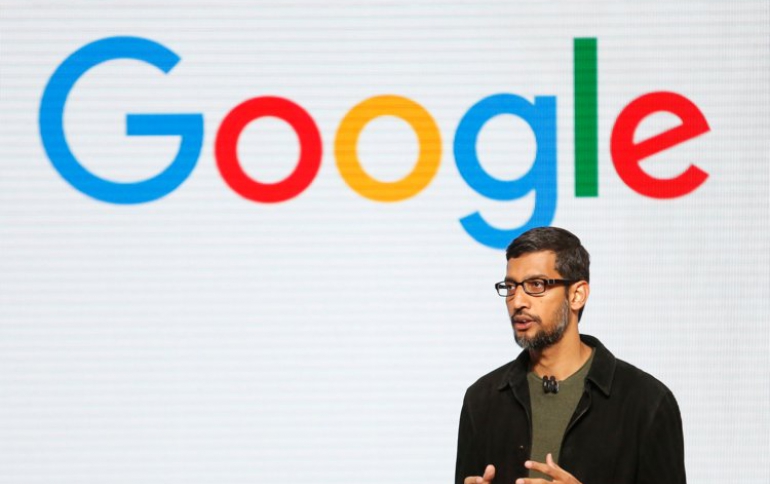
Google Disagrees With EU Antitrust Charges
Alphabet unit Google rejected on Thursday EU antitrust charges of unfairly promoting its shopping service and blocking rivals in online search advertising. Google's general counsel Kent Walker said on a blog that the European Commission's shopping case was based on a theory that was not in line with market reality.
"We never compromised the quality or relevance of the information we received. On the contrary, we improved it. That isn't 'favoring' - that's listening to our customers," Walker said. "We believe these claims are wrong as a matter of fact, law, and economics," he added.
His comments came as the company formally replied to the two charges, one of which it received in April last year and the other in July this year, earlier on Thursday.
This summer, the Commission sent Google a revised version of its case called a "Supplementary Statement of Objections." The Commission’s new filing argued that because sites like Amazon sometimes pay price comparison aggregator sites for referred traffic, they can’t also be considered rivals.
"But many companies simultaneously compete and cooperate. And in fact Amazon gets only a tiny fraction of its traffic from these services, hardly enough to support the idea they don’t compete with price comparison sites and a range of other internet shopping services," Walker said.
Google's second response to the European Commission's "Supplementary Statement of Objections", filed today, shows that the "Commission’s revised case still rests on a theory that just doesn’t fit the reality of how most people shop online," Walker said, adding that "consumers don’t just look for products on a search engine, then click on a price comparison site, and then click again to visit merchant sites. They reach merchant websites via general search engines, specialist search services, merchant platforms, social-media sites, and online ads served by various companies."
Walker also sad that a third of online consumers first go to Amazon, irrespective of where they ultimately make their purchases. Only 14.3% go first to Google, and only 6.7% to price comparison sites.
He said that there is "no meaningful correlation between the evolution of our search services and the performance of price comparison sites," and that over the last ten years, anincreasing amount of traffic flowed from Google's search pages to popular sites like Amazon and eBay as they expanded in Europe, concluding that Google is not "favouring" its own ads.
The Commission is also asking Google not to use specialized algorithms to highlight what Google considers to be the most relevant merchants’ ads for its users, but should instead highlight ads from price comparison sites.
Walker said that Google gets feedback from its users every time they use its services and their clicks tell the search giant that this just isn’t how they want to shop. "orcing us to direct more clicks to price comparison aggregators would just subsidize sites that have become less useful for consumers."
Google today also filed a response to the Commission's concerns about Google's advertising service AdSense for Search, and in the days to come the company will respond to the Statement of Objections about the Android operating system.




















